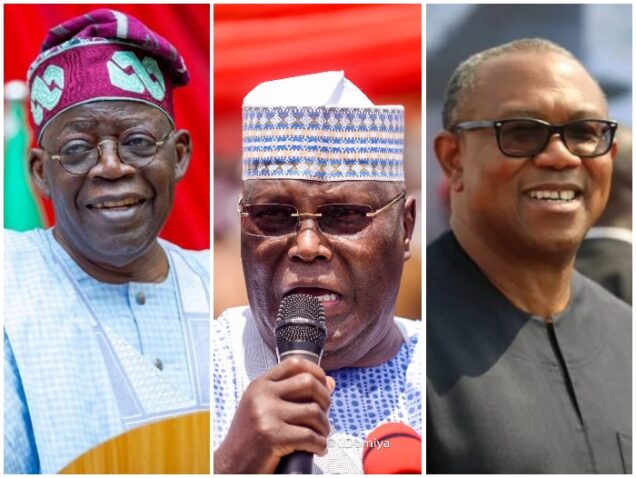Ahead of the 2023 presidential election, Socio-Economic Rights and Accountability Project (SERAP) has urged the 18 Presidential candidates of political parties to divulge information of their holdings and liabilities.
In an open letter to presidential candidates, the organisation charged them to publicly declare their assets and urged them to avoid vote-buying and electoral bribery both before and after the elections.
The SERAP Deputy Director Kolawole Oluwadare on Saturday described the presidency as a public trust, noting that voters deserve to hear from presidential candidates about what they will do about issues of public interest, particularly with respect to integrity, selflessness, openness, accountability, human rights, and the rule of law if elected.
It stated, “While there is no constitutional requirement for presidential candidates to publish their assets and liabilities before elections, doing so would show that you can stand up for transparency in assets declaration by public officers if elected.
Read also: Probe N11 trillion squandered on electricity supply, SERAP Urges Buhari
“The public office is a public trust. As such, the voters deserve to hear from presidential candidates regarding what they will do about issues of public interest, particularly with respect to integrity, selflessness, openness, accountability, human rights, and the rule of law if elected.
“As you and your parties prepare for presidential election campaigns, we hope that you will seize the opportunity to show your commitment to addressing these fundamental issues of public interest by immediately publishing details of your assets and rejecting vote buying, intimidation and harassment.
“Publicly committing to these issues will also show the voters that if elected you would act solely to protect the public interest; and avoid placing yourself under any obligation to people or organisations that might try inappropriately to influence you in the discharge of your constitutional duties.
“The practice of vote buying and electoral bribery by politicians have characterised elections in the country for many years, preventing political equality and fair electoral competition. Yet, no body politic worthy of being called a democracy entrusts the selection of leaders to a process of auction or barter.’’
According to SERAP, “Vote buying amounts to undue influence and improper electoral influence. When politicians buy votes, they reinforce social subjugation and do long-term damage to poor voters.
“Please let us know if you and your political party are willing to commit to some or all of the issues outlined in this letter.”
Presidential candidates for Nigeria’s general elections in 2023 include Alhaji Atiku Abubakar of Peoples’ Democratic Party (PDP); Asiwaju Bola Tinubu of All Progressive Congress (APC); Mr Peter Obi of Labour Party (LP); Mr Rabiu Musa Kwankwaso of New Nigeria Peoples Party (NNPP), and Professor Peter Umeadi of All Progressive Grand Alliance (APGA).
Others are Prince Malik Ado-Ibrahim of Young Progressive Party (YPP); Omoyele Sowore of Africa Action Congress (AAC); Prince Adewole Adebayo of Social Democratic Party (SDP); Mr Kola Abiola of Peoples Redemption Party (PRP); Professor Christopher Imumulen of Accord Party (AP); Dumebi Kachikwu of African Democratic Congress (ADC); and Yusuf Mamman Dan Talle of Allied Peoples Movement (APM).

